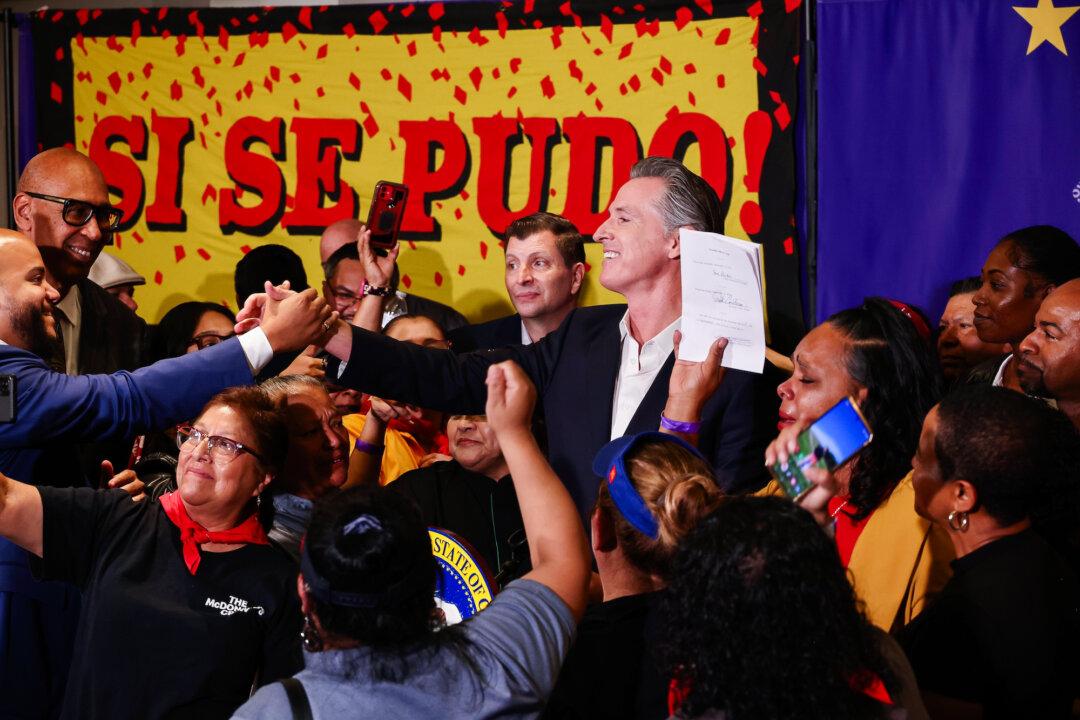California Gov. Gavin Newsom signed a new bill into law on March 25 that adds exemptions to a controversial fast-food law passed last year that raised the minimum wage to at least $20 per hour for some restaurants in the industry.
The governor approved Assembly Bill 610—authored by Assemblyman Chris Holden—which exempts restaurants in certain locations, including in hotels, event centers, theme parks, stadiums, corporate campuses, and on public lands, among others from Assembly Bill 1228, which takes effect on April 1.





